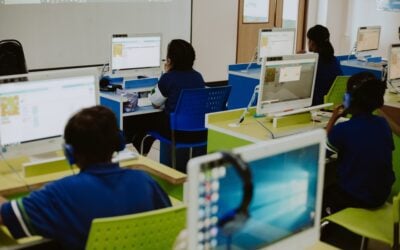Personalized learning is a tailoring process that takes into account curriculum, pedagogy, and the learning environment. With this approach, the needs of individual learners are met by offering them choices about what, when, and how they learn.
Custom or personalized e-learning allows students to actively customize elements of the educational process and communicate with instructors and teachers more effectively. In simpler terms, with the accessibility that e-learning allows, students can take an active role in managing their learning experience and personalize it according to their specific academic and learning requirements.
This claim is backed by facts. According to studies, children are more motivated for academic excellence if they’re privy to four conditions:
- when they feel competent in their problem-solving capabilities
- when they realize their actions have a bearing on the outcomes they receive and they’re given control over a task
- when said task has particular value or is interesting
- when they’re rewarded socially for completing a task that they were actively involved in, such as peer approval
Key factors in this academic approach include: the pace of the learning process; activities that are based on the student’s learning capabilities and interests; and an instructional approach to the learning process. In short, e-learning platforms allow students to take on the role of instructors by being in charge of their learning experience.
The learning process can also be elevated once students have a say about the content and processes involved via feedback—a fact that electronic learning depends on for its longevity. This can be processed automatically or manually, based on the tech being utilized in the classroom, which could also be managed with an AI subsystem.
However, according to a study that discussed the importance of this facet of e-learning systems, the mechanisms of feedback have changed with advances in Web-based learning systems. Children require consistent and regular advice about their learning experience, how their performance is evaluated, how they can improve, and how they are graded. To ensure they receive enough attention, the e-learning system needs to have the following features:
- thorough and timely online feedback
- a platform for formative online group discussions
- consistent feedback regarding grades
Effective e-learning teaching methods involve customized feedback for each student that’s worded in a diplomatic, constructive, and substantive way. To accommodate these features, the designs that need to be utilized for the Web-based platforms must address how the feedback will be represented, what should be included and excluded, when it should be sent, and the structure it should have.
With the advent and popular acceptance of electronic content for educational purposes, perhaps it’s time more schools adopted Web-based teaching alternatives. Besides being more structured, the methodologies can ensure a personal learning experience for each child by offering them a degree of choice in their education.




